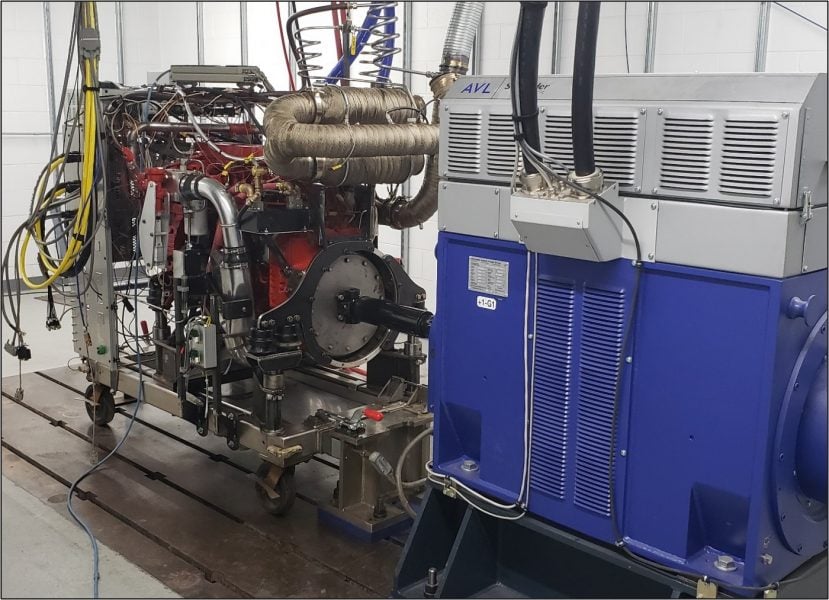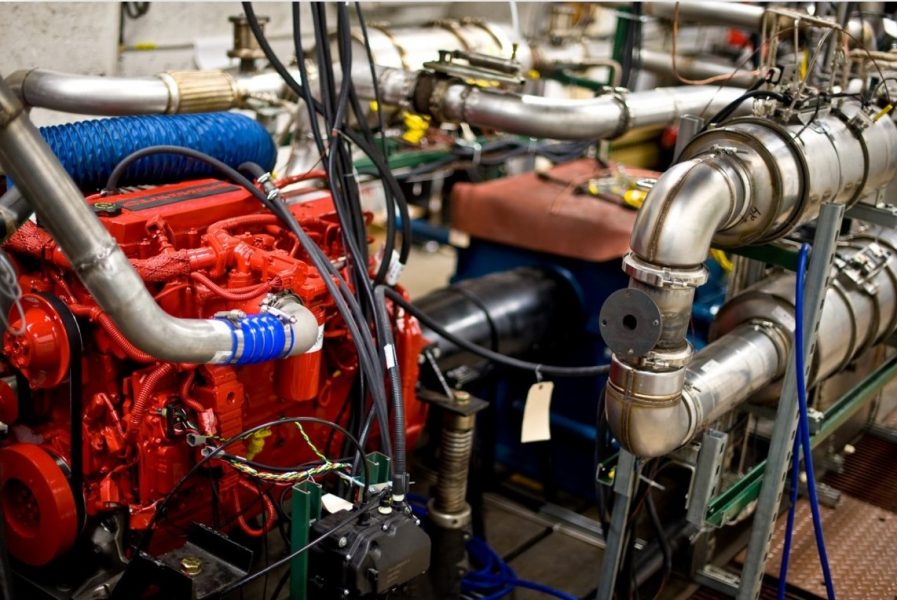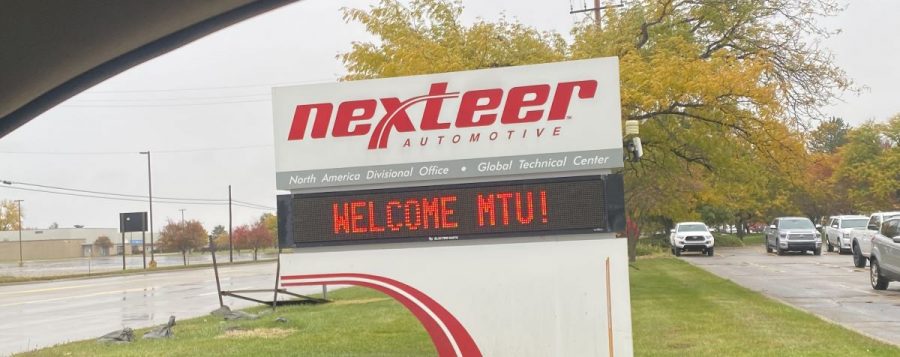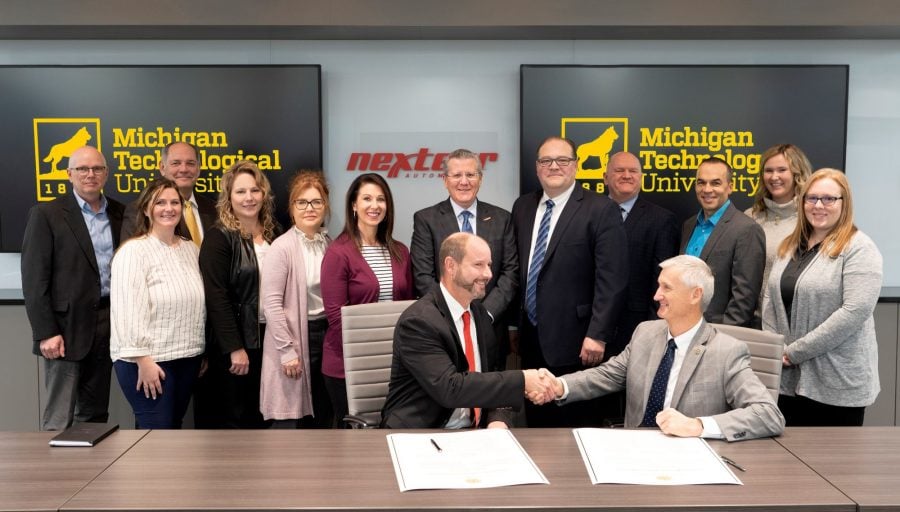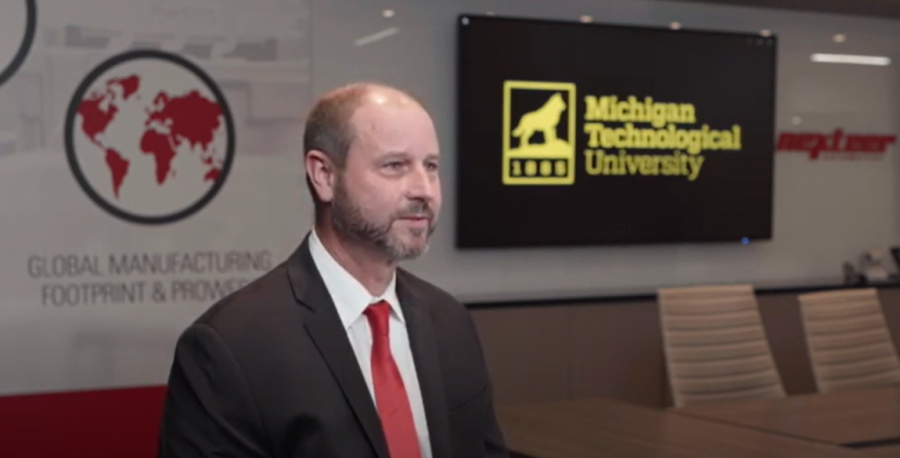Very Important Note: The author constructed this blog with the helpful, substantive input and the important, factual content (and snappy title) from these two Michigan Tech staff, writers, and people: Kimberley Geiger, director of Communications for the College of Engineering; and Donna Jeno-Amici, coordinator of Research and Marketing at the Department of Engineering-Engineering Mechanics.
Discover the Latest Internal Combustion Engines (ICE) Breakthroughs.
Michigan Tech is proud to announce an expansion of graduate-level course offerings in the specialized area of internal combustion engines (ICE). These courses will be available on campus at Michigan Tech, as well as online at MTU Global Campus.
Students can enroll in these courses individually if they require expertise in a certain ICE area. Or they can take several to create a graduate certificate that provides more advanced, specialized knowledge in internal combustion engines. Currently, the Department of Mechanical Engineering-Engineering Mechanics is developing a 15-course ICE graduate certificate. Alternatively, those interested may pursue an MS in Mechanical Engineering with a focus area on ICE.
And as with all graduate programs, the online application is free. And no GRE is required.
Enroll in Summer Classes.
Wasting no time, the ME-EM department is offering these courses right away. In fact, there are a few graduate-level offerings on deck for Summer 2024 and one brand-new course for Fall 2024.
Summer 2024 Courses
- SI Engine Fundamentals (MEEM 5201): June 19-21, 2024, lab course
- SI Engine Controls (MEEM 5203): July 10-12, 2024, lab course
- Online Thermodynamics Refresher (MEEM 3990): June 10 – Aug. 8, 2024
New Offering for Fall 2024
- Thermodynamics for Engine Systems (MEEM 5990) is available, along with our existing courses.
These courses could fill soon, so we recommend that you contact Jeff Naber at jnaber@mtu.edu for more information.
Learn From ICE Industry Experts.
These courses have been developed in collaboration with Dr. Andrea Strzelec, Sr. Research Scientist at USCAR. Strzelec, FSAE, holds a Ph.D. in Combustion Engineering from the University of Wisconsin-Madison Engine Research Center. She specializes in transportation and fuels, as well as engine research. Formerly the program director of Masters of Engineering in Engine Systems at the University of Wisconsin-Madison College of Engineering, Strzelec is lending her substantial expertise to Michigan Tech to launch this new engines-focused program.
USCAR, the United States Council for Automotive Research, is an umbrella organization facilitating pre-competitive research and development collaboration for Ford Motor Company, General Motors, and Stellantis. Its main objective is strengthening the U.S. auto industry’s technology base. It does so by promoting cooperative research efforts, reducing costs, supporting regulatory compliance, and accelerating the development of advanced technologies. Another of USCAR’s goals is keeping the U.S. automotive industry globally competitive.
This new graduate program will not only provide Michigan Tech students with both foundational and specialized ICE knowledge and skills, but also prepare them for advances in the US automotive industry.
Acquire Practical ICE Expertise and Skills.
Despite the move towards electrification and advances in battery technology, the world still needs internal combustion engines. For those unfamiliar with the technology, ICEs generate power by burning fuel inside a confined space (combustion chamber). The combustion process then releases energy, which is converted into mechanical work to move a vehicle or operate machinery. These engines generally run on gasoline, diesel, natural gas, and biofuels.
ICEs are known for their low cost, broad availability, durability, and high performance. They also have a rich research and development history. That is, ICEs have been improved and refined over several years. Besides working on lowering emissions and increasing fuel efficiency, researchers and engineers have made advances in engine design, control systems, and fuel compatibility.
Most importantly, these engines reliably provide high power and torque, features especially important in military, industrial, and other heavy-duty applications. The US military, in fact, uses diesel engines (one type of ICE) in nearly all of its ground vehicles because diesel fuel is less flammable and has a high energy density.
Furthermore, IC engines still feature prominently in automobiles, marine vessels, and aircraft. They also power a lot of portable equipment (lawn mowers, chainsaws) as well as some standby generators. And many hybrid vehicles still use ICEs in conjunction with electric motors, leveraging the benefits of both technologies to improve fuel efficiency and reduce emissions.
For instance, take the new Formula 1 proposed post-2026 regulations. Along with cars that are 30% lighter as well as more aerodynamic and agile, FIA is proposing a power unit redesign that is “an even split between internal combustion engine and electric power plus the use of 100% sustainable fuels.” That is, even a plan for the sustainable future of elite race car driving involves ICEs.
Reach Out About the New ICE Program.
In short, for several applications, ICEs are likely to remain relevant for the foreseeable future.
For additional details on these courses and the new ICE graduate programs from ME-EM, please contact
- Michigan Tech Professor Jeff Naber at jnaber@mtu.edu
- Or Dr. Andrea Strzelec (Michigan Tech Adjunct Professor) strzelec@uscar.org
To learn about all MS online programs, please visit MTU Global Campus.
